Cornish archaeology a great contributor
Cornish Archaeological Legend - Lt Col F C Hirst
I recently spotted an image shared on social media by the Cornwall Heritage Trust a short while back. It was a memorial stone in Zennor mentioning primarily Frederick Christian Hirst, of whom most people in Cornwall have probably never heard. Seeing it made me both happy and sad for different reasons, certainly happy that this man had been remembered in this small memorial in Zennor, where he was acknowledged as the founder of the Wayside Museum and the West Cornwall Field Club. This small memorial was unveiled by Mrs Joyce Wrigley on 6th July 1985 at the invitation of Dr C A Ralegh Radford the last President of the West Cornwall Field Club.
So, who was Frederick Christian Hirst? Born on 24th December 1874, in Sindh in what is now Pakistan, then India, Fred was the third of four sons. Sent back to England to attend Bath College he followed this by joining the army and going to the Royal Military College, Sandhurst. It was there that he met and became a long-time friend of Winston Churchill. After Sandhurst he firstly joined the Manchester Regiment and then returned to India where he ultimately joined the Survey of India. Here they were concerned not just with mapping, but with preparation for major civil works and the enumeration of large population districts for taxation purposes. He married in 1902 and had two sons and his career progressed swiftly becoming a Major in 1913. From 1906 he was Director of Surveys for Bengal and Assam and during this role he was responsible for many publications. In 1924 Fred retired from the army with the rank of Lieutenant-Colonel aged 50. His wife Caroline was diagnosed with insanity after the birth of their second son and spent the remainder of her life in hospitals dying in 1961. Fred and the boys moved to Cambridge, where his mother Christina was living until her death in 1922 before moving to Zennor in about 1924. On 25th April 1925 Fred’s youngest son Eric died and is buried at St Senara Churchyard, his eldest son Leslie aged 16 had already left for Australia in January 1925. Lesley became what became known as a Dreadnought Boy, these lads emigrated to Australia under a scheme to work on farms. There is no evidence that he ever returned to Cornwall, marrying and having many children dying in Australia in 1990.
Fred had an interest in archaeology and this together with his fieldwork mapping experience and many other interests including the exploration of Cornish place names and dialect. In 1931 Fred offered to help a young American graduate who had been asked to undertake a dig at Chysauster, which was being taken into guardianship by the ‘Office of Works’. Fred’s knowledge and interest in courtyard-houses was known so the offer was accepted. That year Roman archaeology was uncovered at Magor Farm, Illogan and Hirst was asked to assist Bryan O’Neil by the newly formed Excavations Committee organised through the Royal Institution of Cornwall. Fred suggested plans for training local diggers to excavate a large courtyard-house at Porthmeor, the newly formed official ‘Cornwall Excavations Committee’ accepted, funds were raised, and Fred was appointed Honorary Director with the dig commencing in 1933. This was a huge success and there was much public interest. As well as these endeavours Fred Hirst had also taken to advising the relatively new ‘Old Cornwall’ movement on archaeological matters. Also, in 1933 Fred was made a bard of Gorsedh Kernow at Roche taking the bardic name ‘Whyler a-bell’ meaning Seeker from afar and joined the council of the Royal Institution of Cornwall.
In 1931 Fred was awarded a first-class silver medal by the Royal Cornwall Polytechnic Society. The citation around the medal reads ‘Awarded to Lieut Col F C Hirst for History of Zennor”. Throughout his time in Cornwall Fred had written a number of books and contributions to numerous articles not just in Cornwall but including the British Archaeological Association relating to his work and interests.
At the end of the third season of digging at Porthmeor Fred resigned as Honorary Director of Excavations due to lack of support from sponsors. Along with others Fred formed a Field Club (Archaeological) in 1935 with himself as its first President. A number of well-known and respected people joined, and these would contribute much to Cornwall’s archaeological heritage and research over the following decades.
The Wayside Museum was also Fred Hirst’s passion and in early 1937 he started collecting items at his home that were being sold for scrap or being left to waste away. Within the first three months over 500 items had been collected and Fred’s aim was to have an examples of a historic cottage kitchen along with many working implements showing aspects of Cornwall’s past times as a Cornish folk museum. The first season saw over 1,100 people visit the new Wayside Museum. This museum with passionate curators would grow in size and prior to its closure in 2015 was receiving many thousands of visitors each year. What remains are online messages that are so positive and show how much visitors enjoyed their visits. My sadness is felt because this museum created by a man not from Cornwall, who worked so hard for Cornwall’s benefit and who clearly came to love Cornwall its history, heritage and people, has now passed into history itself.
On 21st May 1938 Lieutenant-Colonel F C Hirst died at St Mary’s Hospital, Paddington. He had gone there to have an operation and had not been well for some time.
His obituary was in the Times and also in the Cornishman and Cornish Telegraph was even more profuse in it’s praise for Fred Hirst and the headline of Loss to Zennor and West Cornwall, perhaps understated his achievements and breadth of his influence throughout Cornwall.
Part of a long obituary read. “Col. Hirst was a rare personality. No one could meet him without liking him at once; he embodied in a high degree the qualities which distinguish the finest types of scientific mind modesty, freedom from narrow conventions, intellectual vigour and a warm human kindliness. He had a delightful sense of humour and a buoyant cheerfulness which never seemed to fail. Few on meeting him would have guessed that he was one who had known, besides the success of his career, more than the usual measure of that trouble to which, it is said, man is born "as the sparks fly upwards." It was primarily through the fact that his son had died at the age of thirteen that he decided to make his home in Zenner. where the child was buried; it was a sad chance which was to have happy consequences fur Cornwall and for archaeological research in general.
He possessed a gift of making his subject both clear and compellingly interesting to the layman, so that in walking with him around an excavated site one would gain, from his conversation. not only a correct impression of what the village was probably like in the long ago but something also of that curious thrill which one may know when one is brought into touch with the multitudinous past.”
His work as a founder of the West Cornwall Field Club would intime lead to it transitioning into one of Cornwall’s most important societies, the Cornwall Archaeological Society in 1961. The opening editorial of its first journal in 1962 was quick to remember Lieutenant-Colonel F C Hirst his work prior to and after formation of the West Cornwall Field Club was so important to the uncovering of so much of Cornwall’s archaeological heritage.
A small memorial with a large story remembering a man and colleagues that he inspired to carry on his work and vision. I am pleased to have had the opportunity to share something of this man who made such a huge contribution to Cornwall and now sadly largely forgotten.
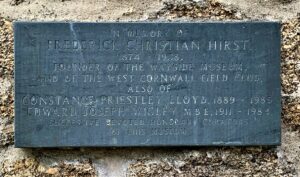
![Eric Hirst - Zennor Church [1] Eric Ollyett Hirst - Zennor Church 1911-1925](https://www.cornwallheritage.com/wp-content/uploads/2020/11/Eric-Hirst-Zennor-Church-1-140x300.jpeg)
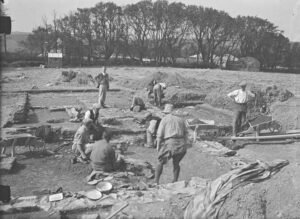
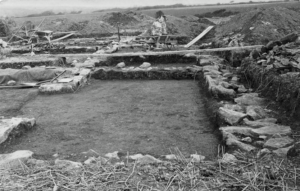
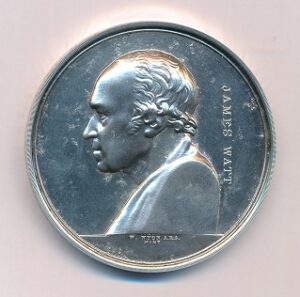
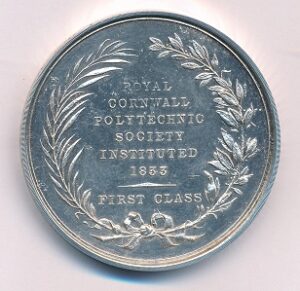
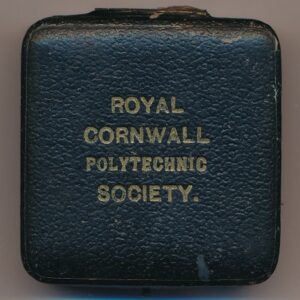
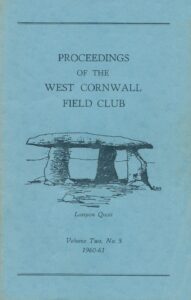
![Wayside Museum [2] Wayside Museum 2013](https://www.cornwallheritage.com/wp-content/uploads/2020/11/Wayside-Museum-2-300x224.jpg)
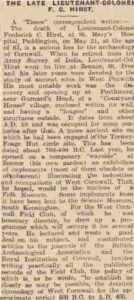
![Wayside Museum [1] Wayside Museum 2013](https://www.cornwallheritage.com/wp-content/uploads/2020/11/Wayside-Museum-1.jpg)
![Wayside Museum [11] Wayside Museum 2013](https://www.cornwallheritage.com/wp-content/uploads/2020/11/Wayside-Museum-11-300x223.jpg)
![Wayside Museum [8] Wayside Museum 2013](https://www.cornwallheritage.com/wp-content/uploads/2020/11/Wayside-Museum-8-300x224.jpg)
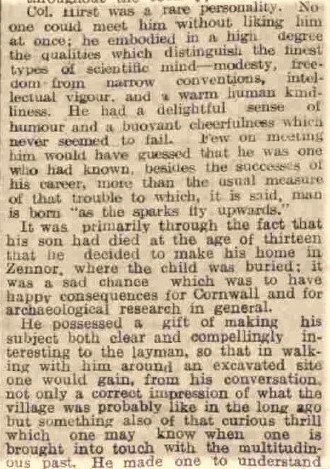
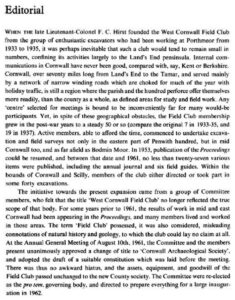
![[21] Voice - Ertach Kernow-181120A - (Lt Col Hirst) Huge contribution to heritage [S] Ertach Kernow- (Lt Col F C Hirst) Huge contribution to our culture](https://www.cornwallheritage.com/wp-content/uploads/2020/11/21-Voice-Ertach-Kernow-181120A-Lt-Col-Hirst-Huge-contribution-to-heritage-S-229x300.jpg)
![[21] Voice - Ertach Kernow-181120B - (Lt Col Hirst) Huge contribution to heritage [S] Ertach Kernow- (Lt Col F C Hirst) Huge contribution to our culture](https://www.cornwallheritage.com/wp-content/uploads/2020/11/21-Voice-Ertach-Kernow-181120B-Lt-Col-Hirst-Huge-contribution-to-heritage-S-226x300.jpg)